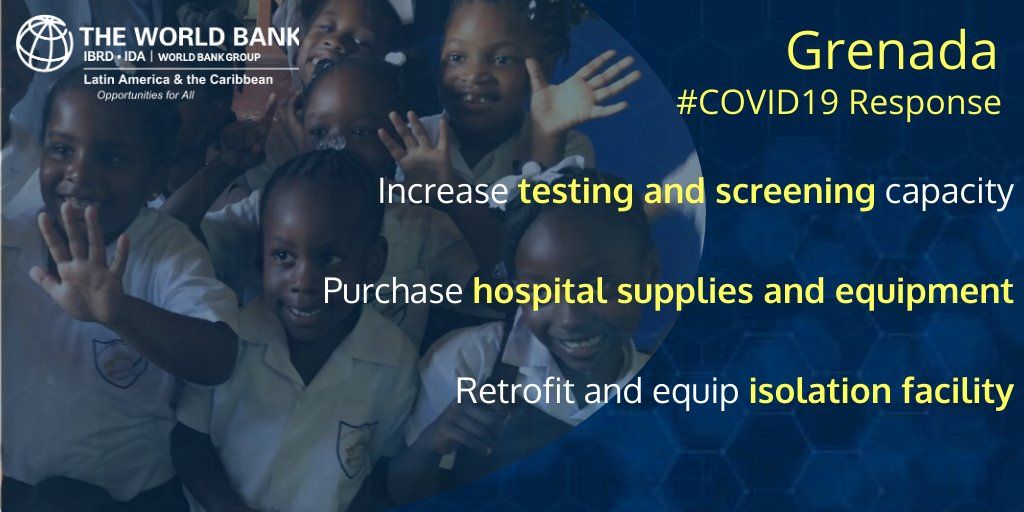World Bank Strengthens Grenada’s COVID-19 Response with US$2.5 Million
Media Release Courtesy The World Bank
WASHINGTON — Grenada will strengthen its response to the COVID-19 pandemic with US$2.5 million from the World Bank. The funds will be used to increase testing capacity, equip health facilities, strengthen isolation capacity, and bolster surveillance activities.
“We are working closely with Grenada on the COVID-19 response,” said Tahseen Sayed, World Bank Country Director for the Caribbean. “This financing will strengthen the capacity of the health system and support frontline health workers to face this pandemic.”
The financing will be used to purchase critical supplies, including personal protective equipment for healthcare workers, medical equipment, laboratory equipment and tests, and goods and services to enhance preparedness and surveillance systems at ports of entry. The funds will also be used for the retrofitting of isolation areas, including a mobile unit, and the procurement of an oxygen generation plant.
These funds were accessed under the Contingency Emergency Response Component (CERC) of the ongoing OECS Regional Health Project. CERCs allow funds to be reallocated to address emergency response needs.
World Bank Group COVID-19 Response:
The World Bank Group, one of the largest sources of funding and knowledge for developing countries, is taking broad, fast action to help developing countries strengthen their pandemic response. We are supporting public health interventions, working to ensure the flow of critical supplies and equipment, and helping the private sector continue to operate and sustain jobs. We will be deploying up to $160 billion in financial support over 15 months to help more than 100 countries protect the poor and vulnerable, support businesses, and bolster economic recovery. This includes $50 billion of new IDA resources through grants and highly concessional loans.
